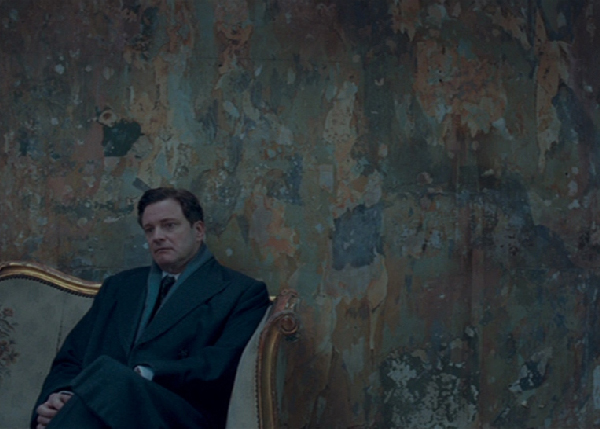The Best Picture Winners: The King’s Speech (2010)
Oscar’s 90th birthday is just around the corner and to celebrate, every other day from now through March 4th, I will be taking a look at each and every film selected for his top award – the good, the bad and the sometimes not-so deserving.

When The King’s Speech was bestowed the honor of Best Picture at the 83rd Annual Academy Awards, I recall that the next day, I referred the choice as “safe.” In the face of such challenging and timely nominees as Black Swan, The Kids Are All Right, The Social Network and even Inception, I could hardly be blamed for accusing the academy of falling back on a choice that didn’t ruffle any feathers. But that doesn’t mean that the movie wasn’t well-made.
As I revisited The King’s Speech the other night, I was reminded why I was so captivated by the film in the first place. Here is a story about England’s Prince Albert (Colin Firth) who, through cosmic and emotional bends of circumstance, was about to find himself crowned England’s King George VI after his brother Edward (Guy Pearce) abdicated in order to marry Wallis Simpson (Eve Best). No one could reasonably complain, except that Albert has spent his entire life struggling with a crippling speech impediment that was threatening to become a massive hindrance as his country was about to go to war with Hitler. The advent of radio meant that the public could now hear their king and at this moment needed a man whose voice bode firm confidence, not stammering and stuttering that would have been detrimental to national morale.
The story, of course, is about the King’s relationship with his speech therapist, a failed Australian actor named Lionel Logue (Geoffrey Rush) who not only trains him, but becomes his friend and conscience.
All of those elements are handled brilliantly, but what impresses me most is the choice to focus on Albert’s problem more than the bigger (and far juicier) story of his brother’s abdication in the face of marrying Simpson.
That’s an interesting turn and a wise choice because the story of Prince Albert’s speech impediment is far less known. And the performances in this movie make it work, particularly Colin Firth, who infuses Albert with a near-crippling measure of insecurity and self-doubt. But the key performance here belongs to Helen Bonham Carter as Albert’s sympathetic wife. She becomes his guiding spirit when he seems compelled to give up, and there are moments when she creates silences that speak volumes. This could have been just a feel-good drama, but it’s time and place and circumstance make it much more than just a treacle; unbound drama the impresses without leaving an impact. This is a personal story about a man who needed to overcome a personal obstacle to be all he could be for his country.









